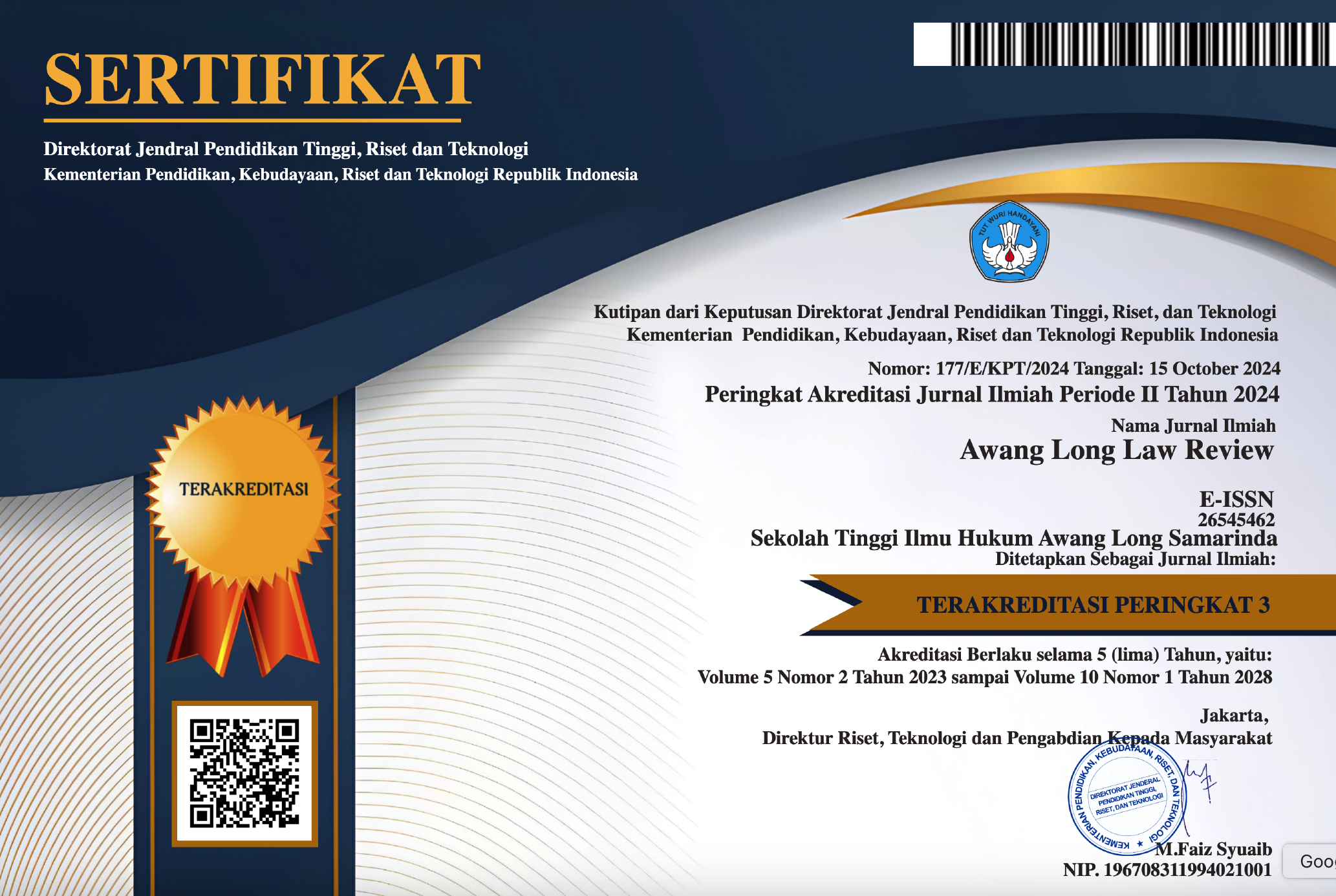THE TRADEMARK RENEWAL PROCESS RELATES TO THE EXCLUSIVE RIGHTS OF THE BRAND HOLDER BASED ON LEGAL CERTAINTY
Abstract
In this age of digitalization, the significance of Intellectual Property cannot be ignored. In experiencing the changing era, the Intellectual Property protection system also needs to adjust well, along with the changes, growth, challenges, and opportunities that exist. The growth of the era cannot be ignored, and in the context of the current growth of Intellectual Property, the protection system must also explore so as not to lag behind and protect the rights of individuals efficiently. With this growth, the process of acquisition and ownership of Intellectual Property as a form of protection of intellectual property, absolutely must be supported, facilitated and facilitated by all parties. With such support, facilitation, and ease, this will not only increase the number and quality of Intellectual Property ownership, but more importantly, it will reflect progress in the field of science and technology at the national level. Not only that, it is also a sign of economic progress and the welfare of citizens. The most important is the trademark which is one of and cannot be separated by aspects of Intellectual Property, along with the Exclusive Rights of the Trademark Holder. Because all of these contexts concern the principle of legal certainty. In the context of the disappearance of national borders due to globalization, with the presence of freedom of entry of objects and services. The management of intellectual property rights is very meaningful for the nation's materials because it can share legal protection for intellectual property owned by creators, inventors, designers, and creators related to their creations or intellectual works.
Downloads
References
Djumhana, M., & Djubaedillah, R. (1993). Hak Milik Intelektual: Sejarah, Teori, dan Praktiknya di Indonesia. (No Title).
Fuady, M. (2016). Pengantar hukum bisnis: Menata bisnis modern di era global.
Gumelar, A. (2023). Hak Kekayaan Intelektual Pada Situs Internet: Suatu Tinjauan dan Analisis Normatif. Jurnal Hukum Dan Sosial Politik, 1(1), 129–143.
Hartono, S. (1994). Penelitian hukum di Indonesia pada akhir abad ke-20.
Indriyanto, A., & Yusnita, I. M. (2017). Aspek Hukum Pendaftaran Merek. Rajawali Press.
Mahmud Marzuki, P. (2010). Metode Penelitian Hukum. Jakarta: Kencana Prenada.
Mashdurohatun, A. (2013). Hak Kekayaan Intelektual (HKI) dalam perspektif Sejarah Indonesia. Hak Kekayaan Intelektual.
Miru, A. (2007). Hukum kontrak perancangan kontrak.
Muchsin, P. (2003). Kepastian Hukum bagi Investor di Indonesia. Magister Ilmu Hukum Program Pascasarjana Universitas Sebelas Maret, Surakarta.
Rahardjo, S. (2003). Sisi-sisi lain dari Hukum di Indonesia. Penerbit Buku Kompas.
Rifai, T. P. (2016). Kesiapan Undang-Undang Nomor 20 Tahun 2016 Tentang Merek Dan Indikasi Geografis Dalam Menghadapi Masyarakat Ekonomi Asean. Universitas Lampung.
Ruslan Renggong, S. H. (2021). Hukum Pidana Khusus Memahami Delik-delik di Luar KUHP Edisi Revisi. Prenada Media.
SUJATMIKO, G. (2021). Analisis Faktor-Faktor Penyebab Keterlambatan Pembangunan Proyek Engineering, Procurement, Construction (EPC)(KASUS PADA PT. PP (PERSERO) TBK DIVISI EPC). Universitas Gadjah Mada.
Copyright (c) 2023 Leonard Tasuno Laiya, Rahaditya

This work is licensed under a Creative Commons Attribution-ShareAlike 4.0 International License.







